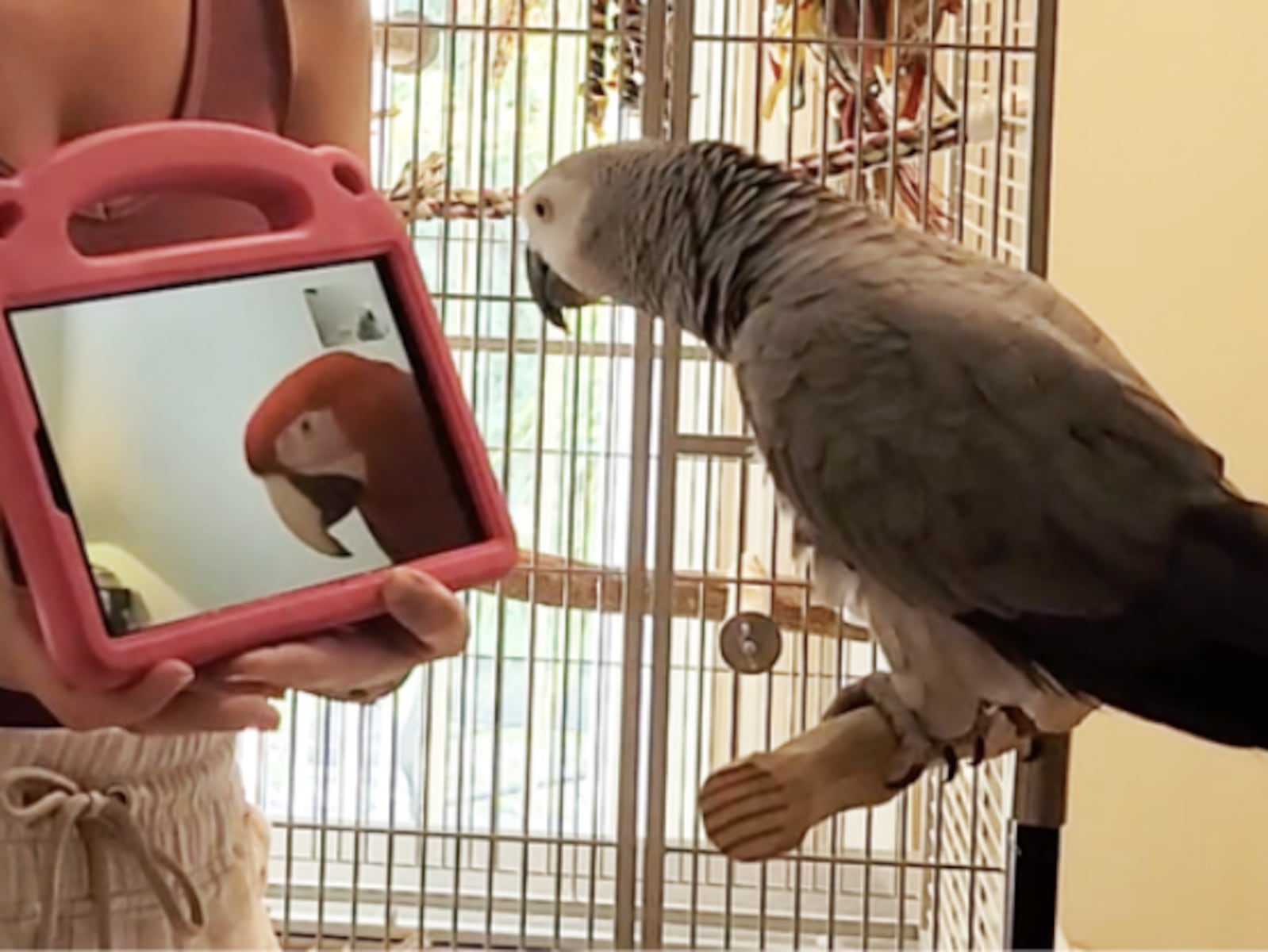A groundbreaking approach to animal enrichment is being championed by researcher Rébecca Kleinberger, who is developing technology that allows animals to control devices instead of forcing them to adapt to human environments. This innovative work began with a hyacinth macaw named Sampson at the San Diego Zoo, where a device called the Joy Branch enabled him to trigger music by interacting with it. This interaction not only entertained Sampson but also attracted zoo visitors, demonstrating the potential for technology to enhance the lives of animals.
Kleinberger, an assistant professor at Northeastern University, initiated this project while at the Massachusetts Institute of Technology (MIT). Her research aims to improve animal welfare through her lab, named the Interspecies Technology for Enrichment and Research on Animal Connection and Togetherness (INTERACT) Animal Lab. Since her work with Sampson in 2019, Kleinberger has expanded her research to include various species across multiple settings, such as pets, wildlife, and lab animals.
“While we cannot definitively prove an animal’s understanding of their actions, we can observe their engagement and usage patterns,” Kleinberger explained. Her research involves collaboration with experts across different fields to assess whether the animals exhibit a sense of control over their interactions.
Current Projects and Collaborations
Kleinberger recently taught a course on designing technology for animals, which attracted 16 students from Northeastern, MIT, and Harvard University. Some students continued their work over the summer at Zoo New England, which encompasses Franklin Park Zoo in Boston and Stone Zoo in Stoneham. Additionally, she is working on a separate project with Tandem Vet Care to investigate ways to reduce stress in cats during veterinary visits.
Though Kleinberger could not disclose specific details about these ongoing projects, she mentioned that findings will be published in the coming months. Her lab has gained attention for engaging and playful projects, such as a study in collaboration with the University of Glasgow, where researchers examined how 20 pet parrots interacted with touchscreen games. This research, set to be published in 2024, aims to enhance animal enrichment by tailoring games to meet the parrots’ tactile needs.
In the previous year, another study with the same university involved an evaluation of a parrot-to-parrot video calling system. This project saw 18 pet birds engage with the technology, resulting in 147 calls initiated by the birds. Notably, some birds could select specific friends to call, with caretakers observing positive behaviors such as improved flying and foraging skills.
Focus on Animal Welfare
While numerous labs worldwide explore animal intelligence and behavior, Kleinberger’s approach distinguishes itself by prioritizing the enhancement of animal lives rather than testing their capabilities. “We are dedicated to discovering how to improve their lives and utilizing every available tool to make a difference,” she stated.
Kleinberger emphasizes the ethical considerations of using technology with animals, ensuring that she collaborates only with accredited facilities that maintain high standards of animal welfare. “Our work also focuses on educating the public and working alongside zookeepers to better understand the needs of animals,” she added.
The increasing availability of pet technology, including sensors and cameras that allow owners to communicate with pets while away, has raised questions about the actual benefits to animals. Kleinberger pointed out that much of this technology is designed for human convenience rather than animal welfare and stresses the need for rigorous evaluation of such tools.
“There is immense potential in technology for animals, but we need to ensure that the right people control these tools and that we have frameworks to assess their impact,” she noted. Kleinberger aims to reverse the typical approach seen in projects like those with Koko the gorilla, which focused on teaching animals human language. Instead, she seeks to empower animals by creating technology that aligns with their natural behaviors and needs.
Through her pioneering work, Kleinberger is setting new standards in the field of animal enrichment, advocating for responsible innovation that enhances the lives of animals by placing them at the center of technological advancements.







